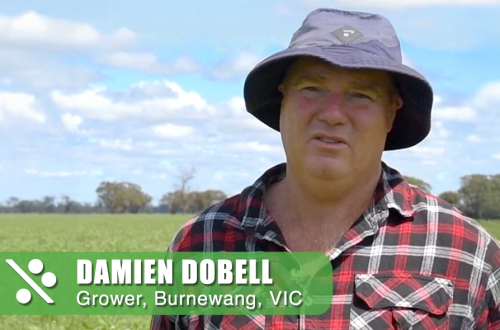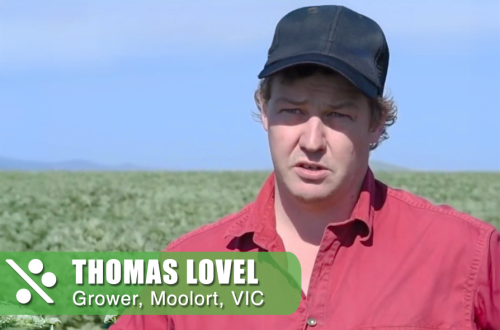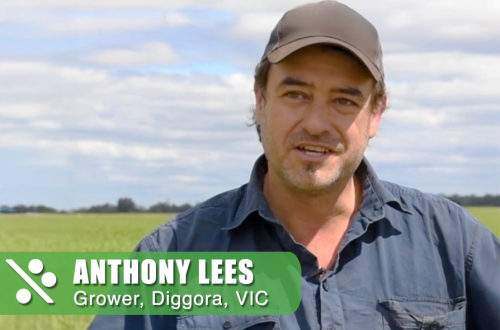NEM develops and distributes farmer focused products from a substantial library of microbiology strains.
NEM develops and distributes farmer focused products from a substantial library of microbiology strains.
Enhances survival rates of Rhizobium cells by providing a protective coating.
Exclusive formulation; soluble concentrated powder. Improves plant performance, yield gains and increases biomass for the following crop.
Improves plant performance, increases biomass and drives yield gains. Helps deliver higher levels of organic nitrogen to subsequent crops.
LALRISE MAX WP is a mycorrhizal inoculant that improves plant nutrient uptake, growth, drought tolerance and yield potential in crop rotations. Built with MYCONNECT® TECHNOLOGY for faster and more root colonization and better product shelf-life.
LALRISE® START SC is a liquid inoculant with Bacillus velezensis, a plant growth promoting rhizobacteria (PGPM) that increases plant establishment through improved root vigor and nutrient availability.
LALSTIM OSMOSP is a highly soluble product containing 97% natural Glycine Betaine, a persistent and powerful osmoprotectant that is absorbed rapidly and moved throughout the plant within 24 hours, remaining active at the cellular level for 2 to 4 weeks.
Beneficial root colonising fungi that can solubilise soil nutrients and aid the transport of water, increasing crop resilience and productivity.
Improves plant performance, yield gains and increases biomass. Higher levels of post-crop nitrate provides nutrients for following crop.
Enhances survival rates of Rhizobium cells by providing a protective coating.

At NEM, we lead the way as Australia's premier producer and supplier of bio-fertilisers and bio-stimulants, revolutionising agriculture. We harness the best Australian and global science to support sustainable farming and a healthier planet.
25 years of experience
Find out more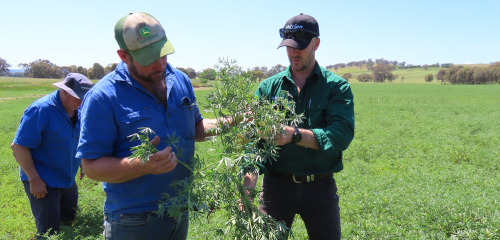
We are thrilled with our recent experience using NoduleN Peat for inoculating our lupins sown on May 5th, 2023. Although we started two weeks later than usual due to wet weather, the results have been promising. We prepared the seed with a double rate of NoduleN Peat, using a paint mixer for an even application, which gave us confidence in the coverage.
While completing the sowing over the weekend, we faced a minor hiccup when we ran out of inoculant and had to use untreated seed for the last bags. We hoped the residual peat dust in the seed box would provide some protection, and we believe it may have helped.
This paddock is challenging due to a resistant ryegrass issue, and past crop rotations—including oats for silage and canola—have laid the groundwork for successfully growing lupins in the future. We’ve found lupins invaluable for our sheep as stock feed, and the use of peat, despite being a bit messy, allowed us to confirm adequate coverage by using visible colour as our guide.
We are optimistic about the upcoming harvest and will be employing a yield monitor to assess the outcomes thoroughly. We’re also looking forward to conducting soil tests after harvest and are open to experimenting with vials for future mixes.
Overall, we appreciate the support and are happy to collaborate further. We welcome the expertise and are keen on continuing to implement innovative farming practices. Thank you for being part of our agricultural journey!

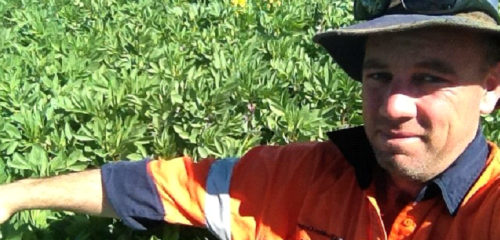
As a grower of Faba Beans and Vetch fallows in the Riverina region of Southern NSW, managing our acidic soils has always been a challenge. With pH levels ranging from 4.5 to 5.3, I've faced issues with poor rhizobia vigour. Our independent agronomy team has long recommended using double rates of inoculant to combat this issue, but the logistics of applying such large volumes of both inoculant and liquid were daunting.
However, we recently switched to a combination of EasyRhiz and peat-based inoculants, which has made a significant difference. This innovative approach effectively doubles the rhizobia numbers without the need to double the volume needed for application.
The results have been impressive—visually, we're seeing robust nodulation and vibrant plant health throughout our crops. This method has not only simplified our inoculation process but has also enhanced the overall performance of our crops. I highly recommend this approach to anyone dealing with similar soil conditions!

